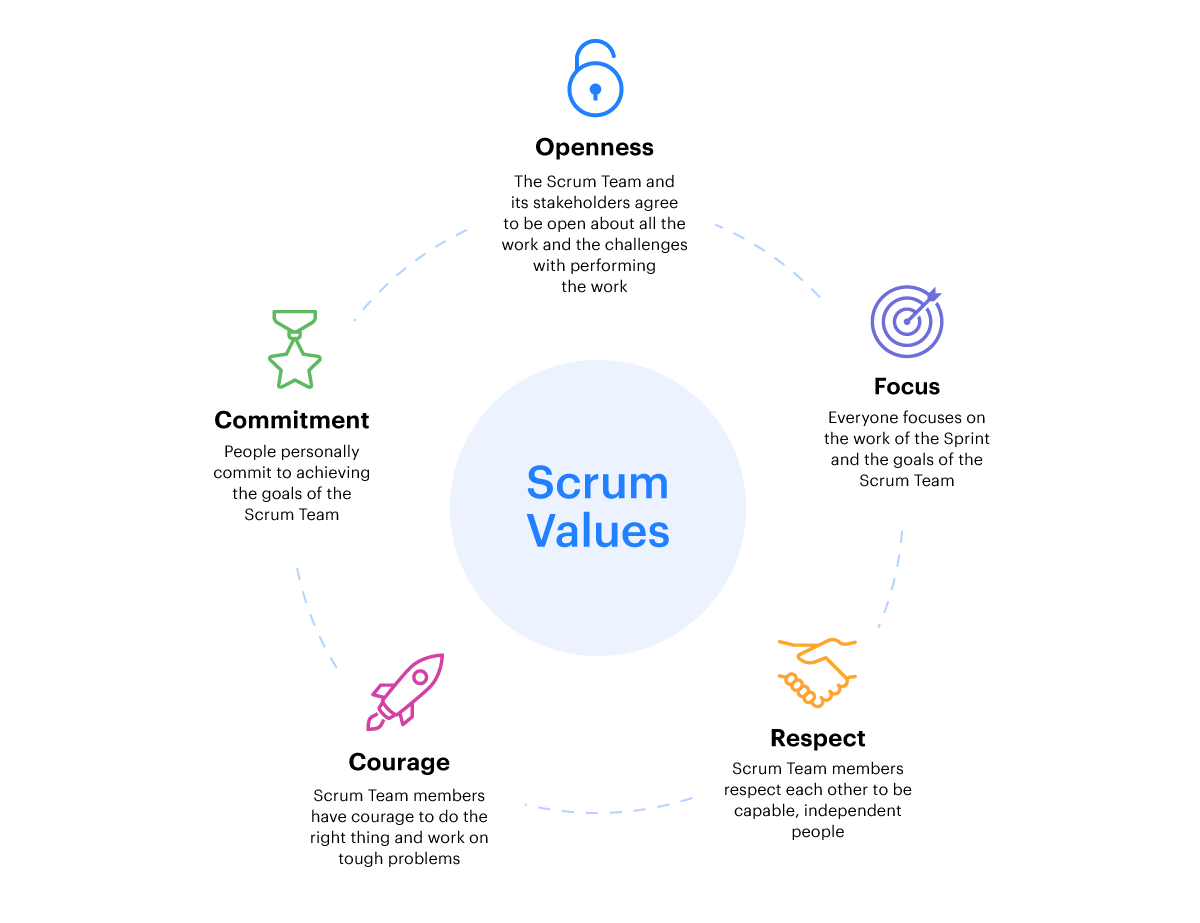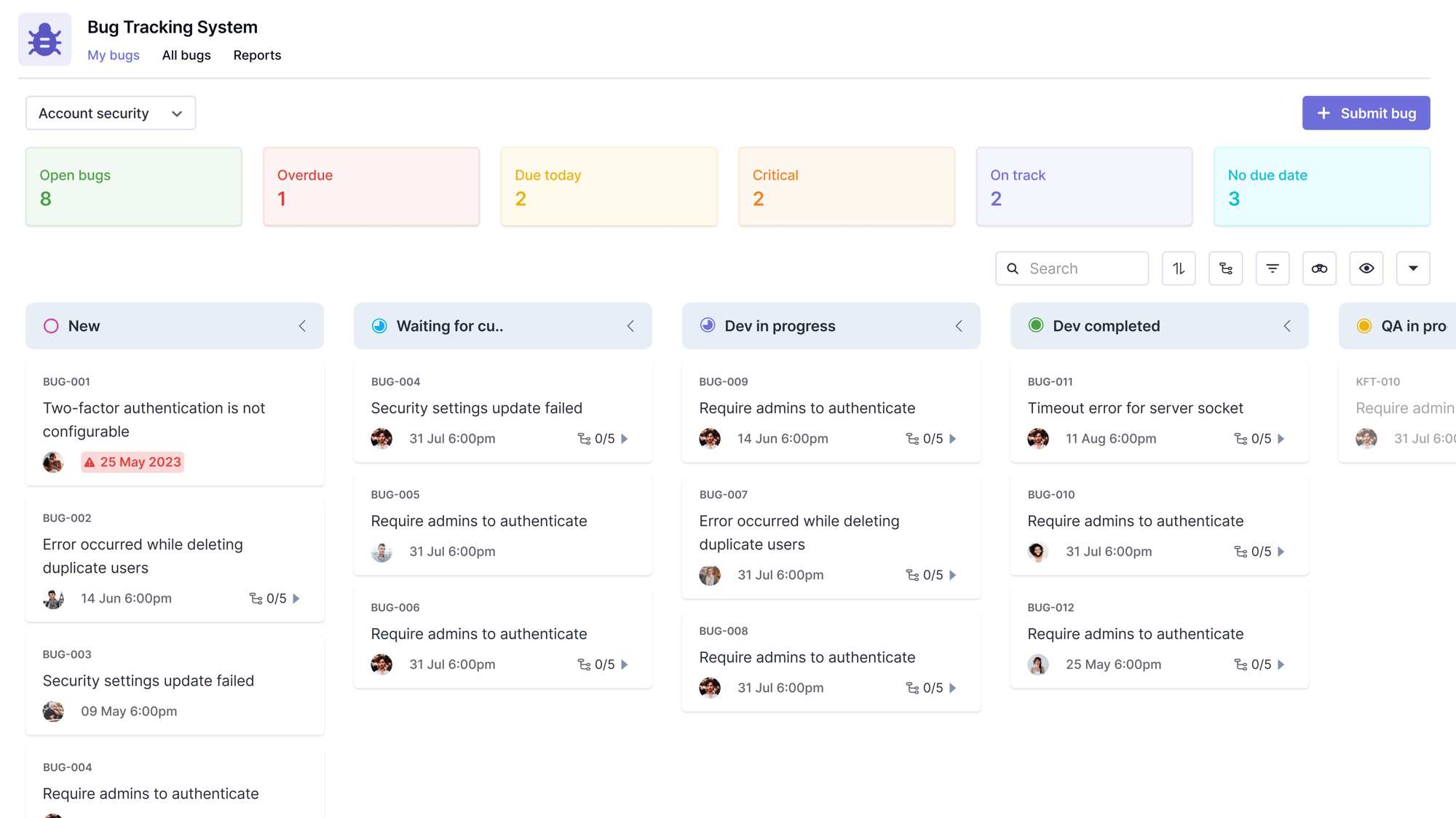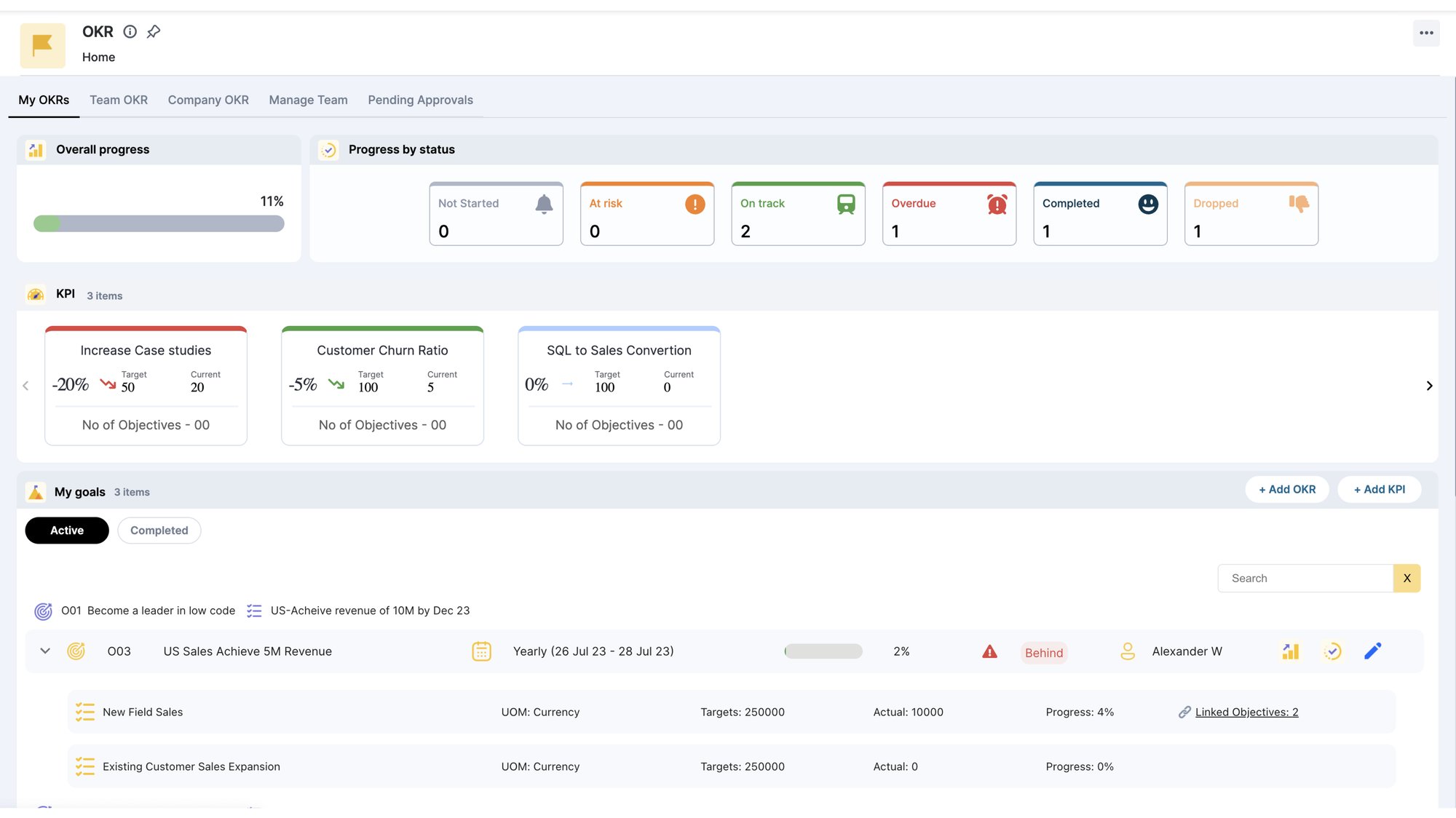If you’re doing project management, especially if you’re looking into agile processes, you’ve probably heard the term “scrum” quite a bit.
Scrum, according to its creators, “is a framework for complex product development.” Originally created for software development teams, Scrum is implemented around the world by teams of all kinds every day. It provides flexibility for teams to adapt to changing circumstances as projects progress.
It also increases accuracy and decreases delivery times by dividing work into short, consecutive “sprints” of 1 to 4 weeks, at the end of which progress is evaluated and areas for improvement explored.
The values of Scrum can be applied to any team context, even if you decide the overall Scrum methodology isn’t a good fit for your team. On the other hand, if you want to implement the Scrum framework in your workflow, the five Scrum values are essential.
The framework doesn’t operate well if the underlying values aren’t implemented so let’s take a look at those values.
5 core values of scrum
Here are the five values of Scrum as defined by its creators, along with our understanding of how those values might play out in your everyday work life:
1. Courage
“Scrum team members have the courage to do the right thing and work on tough problems.”
Scrum values the courage of each individual contributor to the team. While we may not always think of courage in the context of an office job, there are certain circumstances that require some bravery.
For example, it takes courage to point out a mistake even when correcting it will cost your team some time. It takes even more courage if that mistake was made by a superior. Having courage also means tackling difficult challenges head-on rather than procrastinating or passing them off to a colleague.
And don’t forget to try our Free and Customizable Templates:
– Content Calendar Template for Strategic Content Planning
– Competitive Analysis Template for Strategic Content Planning
2. Focus
“Everyone focuses on the work of the Sprint and the goals of the Scrum Team.”
In Scrum, a Sprint is a block of time (no more than four weeks long) in which the team concentrates on a specific set of objectives. On a Scrum Team, focus means that during a Sprint, each individual sets aside pet projects and resists the temptation to work ahead or go back to touch up other tasks.
Every team member must concentrate on the activities included in the Sprint plan in order to support the goals of the team.
3. Commitment
“People personally commit to achieving the goals of the Scrum Team.”
Scrum relies on the personal commitment of each team member to complete the project. It assumes a fairly flat authority structure and does not expect managers to convince or coerce team members into completing tasks.
Instead, Scrum leads to success on the virtue of each individual’s commitment to the good of the project.
Tired of using Asana?
4. Respect
“Scrum Team members respect each other to be capable, independent people.”
Scrum generally consists of collaborative and self-organizing teams, but each member is independent in the sense that no one is constantly checking his or her work. It is assumed that each individual is capable of doing her job without constant oversight or “checking in” by a manager or coworker.
This also means encouraging and expecting people to ask for help when they need it, trusting that every team member will be ready to help since each is committed to the project’s success.
5. Openness
“The Scrum Team and its stakeholders agree to be open about all the work and the challenges with performing the work.”
Nearly every project comes with challenges. Scrum values openness and honestly communicating to all stakeholders without fear. This means telling a team member honestly if something needs to be re-done and receiving that kind of communication graciously, trusting that everyone is working toward the same goals.
This value of openness also means that project stakeholders are expected to communicate promptly and honestly, if, for example, changes in timeline, resources, or product needs occur.

Here is our Customizable Marketing Templates to try for Free:
– Marketing Plan Template to Streamline your Marketing Efforts
How to apply scrum values in day to day life
Courage, focus, commitment, respect, and openness are excellent values for any workplace, even if you aren’t operating in the Scrum framework. But how do you implement values like these on your team?
Communicate the values. Discuss what you’ve learned about Scrum values with your team. You don’t even have to call it “Scrum” if you think that will be a hindrance. Just have a conversation with your team and get buy-in on implementing these five values.
Be the example. As the team lead or project manager, it’s unlikely your team will consistently practice these values if you aren’t.
- Demonstrate courage by taking on difficult tasks.
- Show focus by keeping to your schedule.
- Embody commitment by doing your work well and assuming your team is also.
- Respect your team members by trusting them to do their work independently.
- Model openness by admitting your mistakes and communicating both honestly and kindly about areas for improvement on the team.
Consider what technology you can leverage. There are many digital project management tools out there, but not all of them support Scrum values. Look for a platform that facilitates rather than complicates communication (openness) and allows team members to work independently (commitment and respect).
Kanban boards and flexible process creation are invaluable digital project management asset for the modern team. We might be a little partial, but we think Kissflow’s collaboration tools and team-centric interface make it an excellent option for Scrum teams.
Tired of using Monday.com?
Scrum values take time to implement
Even the creators of Scrum describe it as “simple to understand but difficult to master,” so go easy on yourself and your team as you work to implement the Scrum values. You can start implementing these values right away, but like any worthwhile project management skill, these five values may take years to perfect.
Despite the challenges, you and your team will be better off for practicing the Scrum values of courage, focus, commitment, respect, and openness.
Start using the Kissflow Platform today to enhance your project management efficiency.

.png?width=2000&name=admin%20dashboard%20(2).png)






